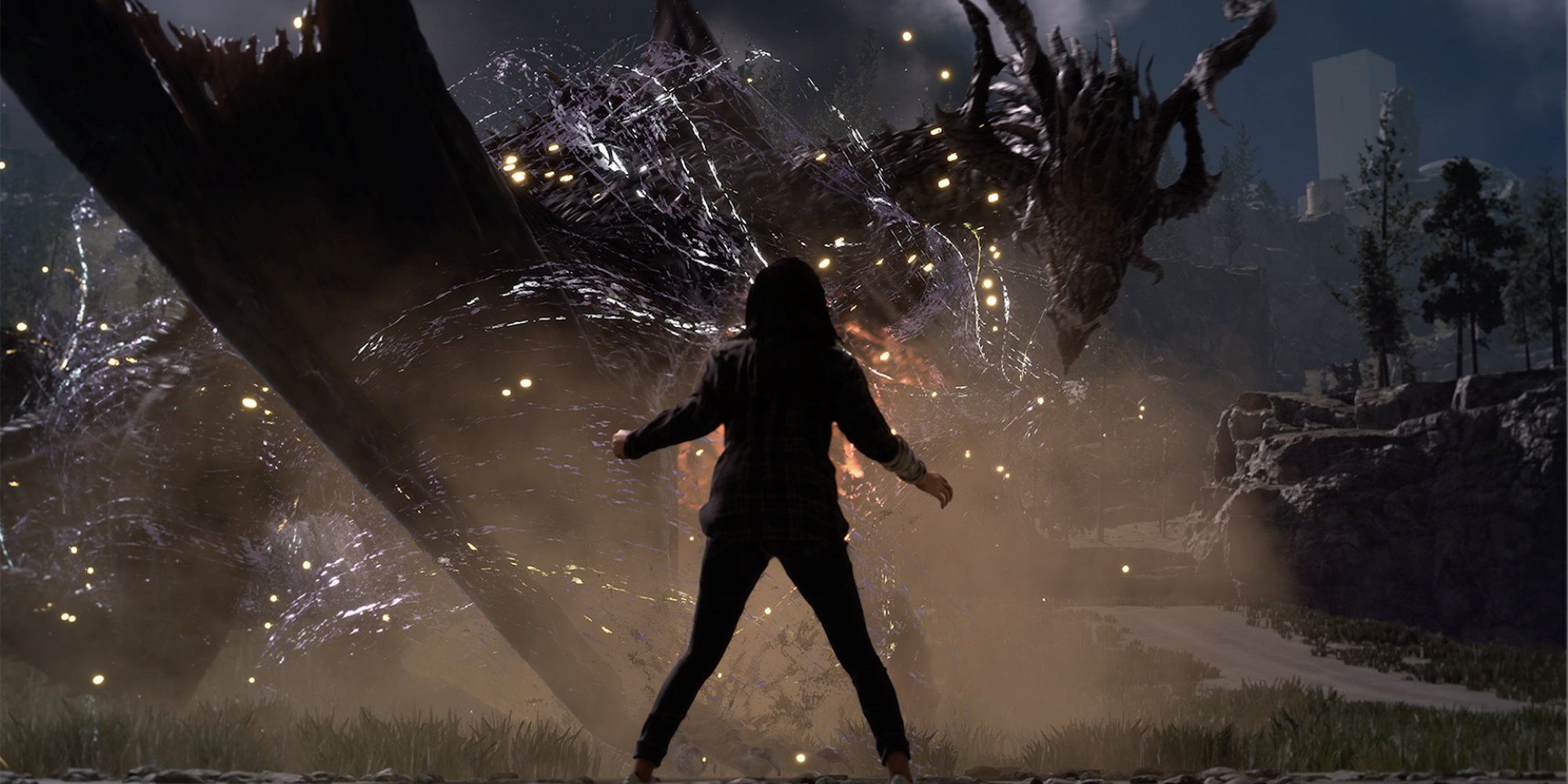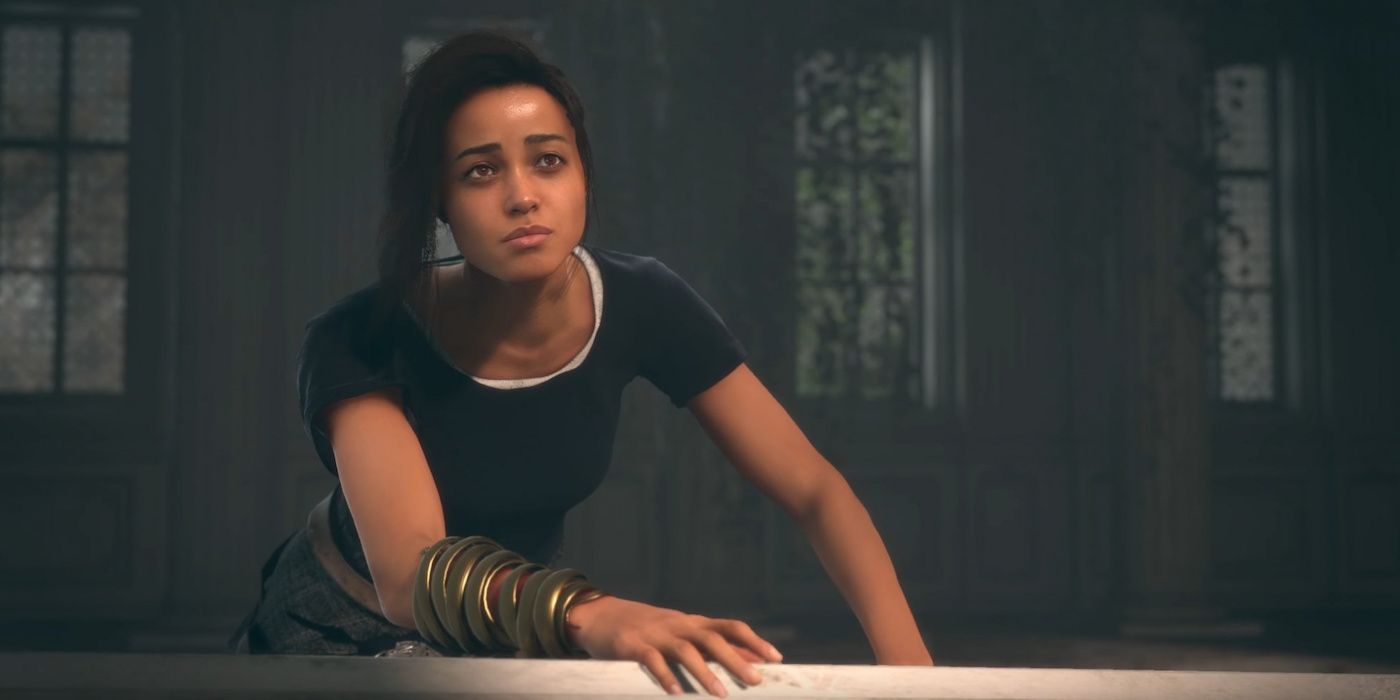Listen, I don’t want to crap on the Forspoken trailer more than all of us already have. Somebody worked hard on it. And, for all we know, a perfectly capable writer was showered with notes like “give the dialogue more pop”, “make it sound the way Gen-Z talks”, and “I’m in this position because being creative didn’t work out, so I’m going to ruin everything I touch.” Take it from someone who’s written for both television and games: The end result ain’t always the way you wanted it to turn out.
Still, the Forspoken trailer is awful. And it’s not just awful because the narration sounds like a style of dialogue that’s fallen out of favor with fans who once – let’s be honest – treated that same type of dialogue like it was delivered by the hands of angels. I know we all retcon our preferences to have always hated something made by a later-outed abuser, but let’s not act like this style didn’t create an entire cottage industry of novelty shirts for two decades. That’s on a lot of us. Not me, because I always hated it. Wink.
The reason the trailer is awful – and this style has become intensely grating – is because not every character on this goddamn planet needs to be self-referential.
For some reason, video games love self-referential jokes. I feel like half of tutorials in games now feature a guy saying something like, “Press A to jump – WHATEVER AN ‘A’ BUTTON IS LOL!” And while I think Tiny Tina’s Wonderlands is leaps and bounds above the other Borderlands games, that series is absolutely filled with characters who will seemingly explode if they don’t make a note of how nuts everything is. The logic being, well, if the world is bonkers, then it’s fun for the audience if everyone notes how bonkers the world is!
Which, it can be. Occasionally.
Because people do sometimes point out that things are weird. They just don’t do it in every sentence. Nobody starts their day with, “Okay. Let me get this straight: I’m making toast. Which is warm bread. In a machine that warms the bread? And it’s called a toaster? That’s convenient! Um… check please!” And if someone made you a breakfast you’d never seen before, you’d probably feign a confused politeness rather than go, “Um… strawberries in cottage cheese? I DON’T THINK SO!” Unless you’re an asshole.
Here’s a sort of obvious example: Think about stoner characters in media because they’re usually the most guilty of this stupid shit. In real life, people might say to each other, “I think I got too high,” but that’s not all they say all the time. Stoners are used to weed. It’s part of their normal routine, so – to them – it’s mundane. They don’t just talk about weed exclusively or say, “Look at the colors, man!” It’s annoying because it flattens out their characterization to a series of worn cliches.
Sure, narrators can be unreliable. Or they can be “aware” of the story – like in The Princess Bride. But if you’re a character in a story, you usually don’t know you’re in a story. And if you’re a character in a story who just got dropped into a terrifying, completely foreign world with magic, you don’t keep calm. In fact, you realistically do one or more of three things: Panic and ask for help, doubt what’s happening, or push through and pretend you know what you’re doing while very much failing at it.
Essentially: “Oh my god, please help me, man. Please. I’m genuinely scared right now.”
When you’re lost in a world, the jokes should come from the reality of the situation itself. That’s why sketches and comedy movies are more fun when the characters believe what’s happening is real. If you look at famous sketches like, “Are We the Baddies?” or “More Cowbell,” both involve situations in which everyone there is processing what they believe to be real circumstances. None of the characters bring it to a halt saying, “THAT JUST HAPPENED!”
Why it’s egregious in the Forspoken trailer is because, we’d assume, that woman’s life is in danger. So she’d probably be scared. Or blown away that she has super powers. Or confused and reluctant. If you found your normal ass suddenly battling a dragon with fireballs, your emotions and adrenaline would be through the fucking roof. You wouldn’t be calmly shooting zingers. And if a character absolutely must snap out a zinger, the best way to make it funny is to undercut that zinger with failure.
There’s a couple ways to fix the Forspoken trailer. One, you could just feature footage of a game and how it’s played. Classic video game trailer. Add epic music and some title cards like, “An adventure like never before!” and you’re home in time for supper. You’d be showing off the game without editorializing the very existence of the game itself.
Two, you could swing for the fences and try having the character actually reacting to the world as if the events were really occurring. If she’s new here, she should say she’s terrified. “Oh my God, you need to help me” is a way funnier way to start a trailer about a woman who teleported into another realm than “Let me get something straight!” She should be melting down. “That’s something I do now!” is a weird way to respond to suddenly having super powers. You would still be scared if you could launch fireballs – especially if you didn’t know why or how.
Of course, the reason why so many self-referential characters in video games exist is because it’s easier to write them. It’s easier to write a robot commenting on HOW WEIRD THESE SUPER BIG GUNS ARE! than it is to write a robot that views its world as normal but wishes it were different. Yes, characters can say funny things when surprised, but that’s because it’s a break from the reality they believe in rather than just acting like every moment of their existence has been cynically pointing out things in front of them.
Games don’t need every character to comment on the game. Not everyone needs to be the funny one. People quip in real life, but they don’t do so at every moment – and those who do are annoying. Trust me: I’ve been that annoying person. So have you.
We know game worlds are absurd – that’s usually why we’re playing them. None of us actually live in a generic JRPG world (unfortunately) – but we also don’t need to be told they’re wacky and weird. If you want a commentary track, add a narrator like in The Stanley Parable who establish themselves as outside the world in some fashion. GLaDOS from Portal may seem like a counterexample but even in her reality, she’s intentionally fucking with the protagonist to further her character goals.
You want to avoid trailers like Forspoken? Respect your audience enough to have characters who believe the world they’re in. Hell, even if those characters suddenly appeared in a strange world, the strange world itself would probably feel real to them and that’s where their emotional comedy should come from. Have characters panic. Have them ask for help. Have them shaking after a fight, not entirely clear on what happened. Jokes can stem from all of those.
In short, they should have emotions that go beyond, “UH, I THINK I GOT THIS.”
Source: Read Full Article


